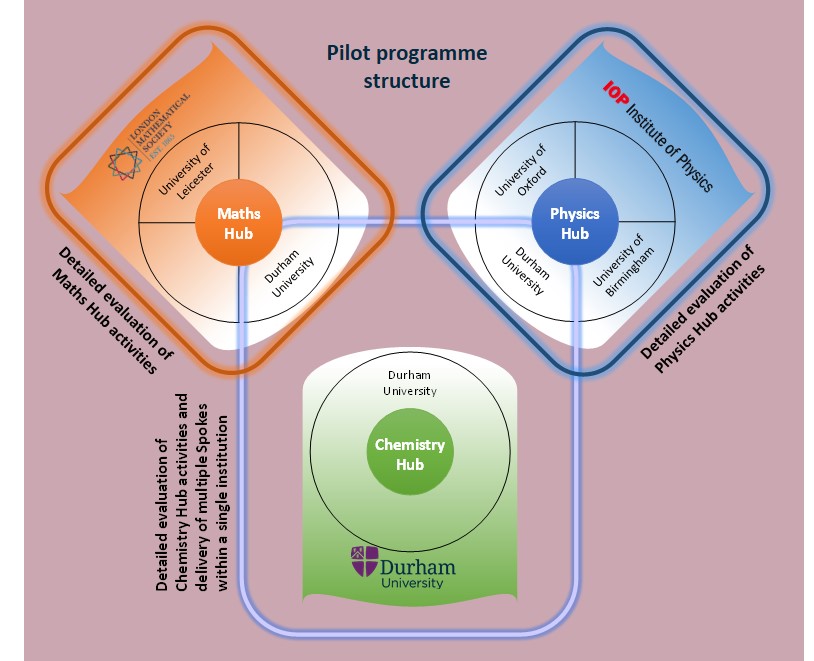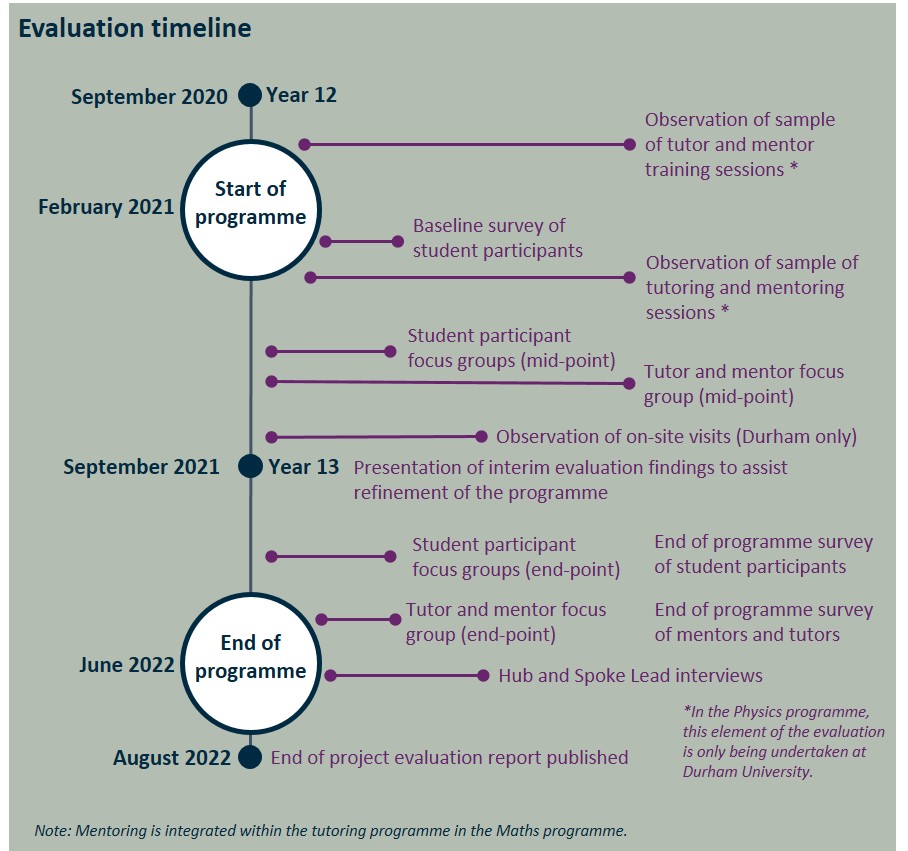Levelling Up Evaluation
Evaluation of the National Levelling Up Widening Participation Programme

Read the full evaluation report for the Levelling Up pilot programme
Download the full evaluation report (including appendices)Opens new window
Background
Levelling Up is a national academic and pastoral online support programme spanning two academic years, targeted at Year 12 students who have an interest in potentially pursuing the study of Chemistry, Maths or Physics at University. In total, 226 students accepted places on the pilot cohort of the programme.
There were three subject strands in the pilot programme, with three Hubs coordinating the overall running of each subject strand. Durham University led the Chemistry strand, the London Mathematical Society the Maths strand, and the Institute of Physics the Physics strand.
For the pilot programme, six departments (Spokes) from four UK universities hosted a cohort of students. There was one Spoke for the Chemistry programme, based at Durham University; two Spokes for Maths, based at Durham University and the University of Leicester; and three Spokes for the Physics programme, based at the University of Birmingham, Durham University, and the University of Oxford. The pilot cohorts started the programme between February 2021 and July 2021 and the last sessions ran between March 2022 and June 2022.
At the outset of the programme, a detailed Theory of Change Model was developed in collaboration with the three programme Hubs in February 2021. This stated the impact the programme Hubs aimed to achieve by the end of a participant’s time on the programme.
Evaluation
The evaluation of the programme sought to answer two overarching research questions:
- Have the intended impact aims and outcomes for the Levelling Up programme been achieved?
- Is it reasonable to conclude the Levelling Up programme of activities contributed to the achievement of these impact aims and outcomes?
The evaluation used a Contribution Analysis Framework to answer these questions, which is a robust method of undertaking evaluation of widening participation programmes with small numbers of participants in complex programmes (TASO, 2022).
To address the research questions, the evaluation utilised a concurrent triangulation mixed methods approach, collecting data in sequential stages with the first stage informing the development of the data collection tools in the second stage (Creswell et al., 2003). Data were collected using: start of programme participant application form, baseline and end of programme surveys, focus groups, interviews, and observation of training sessions and a tutorial session. Analysis was carried out in detail at two timepoints during the project (interim and end-point), with the findings from the interim analysis informing the development of subsequent data collection tools. At both timepoints, qualitative and quantitative data were analysed independently with the findings integrated at the data interpretation stage.
The evaluation was funded by a philanthropic gift to Durham University, the London Mathematical Society and the Institute of Physics.
The evaluation was conducted from Spring 2021 to Summer 2022.

What is the purpose of the study?
The aim of this study is to understand: what works well within the programme; where there may have been barriers or challenges for students or the teams running the programme; whether anything had to be adapted as it was run; how engaging students found the programme; how this programme differs in its provision to other widening participation programmes; and whether there are any changes that need to be made for the future. It will also aim to understand the impact the programme has had for participants and whether students from different backgrounds, have benefitted to varying extents from participating in the programme.

Information for evaluation participants
All information obtained during the study will be kept confidential. If the data is published it will be entirely anonymous and will not be identifiable as yours.
Full details are included in the Privacy notices
Durham University student participants: Privacy Notice
Tutors and mentors: Privacy Notice
Further information?
If you have any further questions or concerns about the evaluation research, please email: [email protected]
